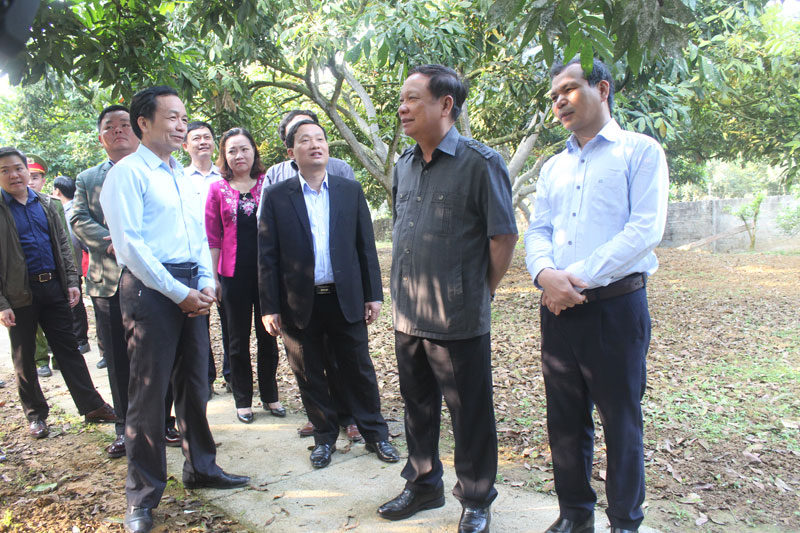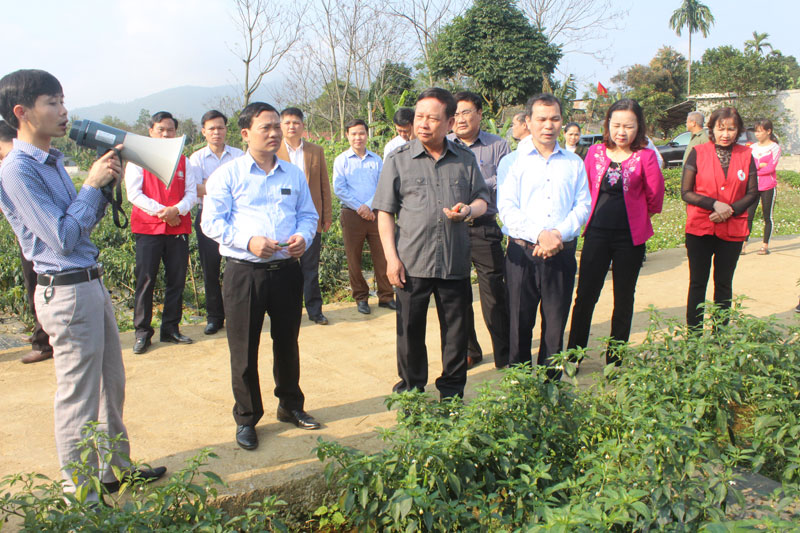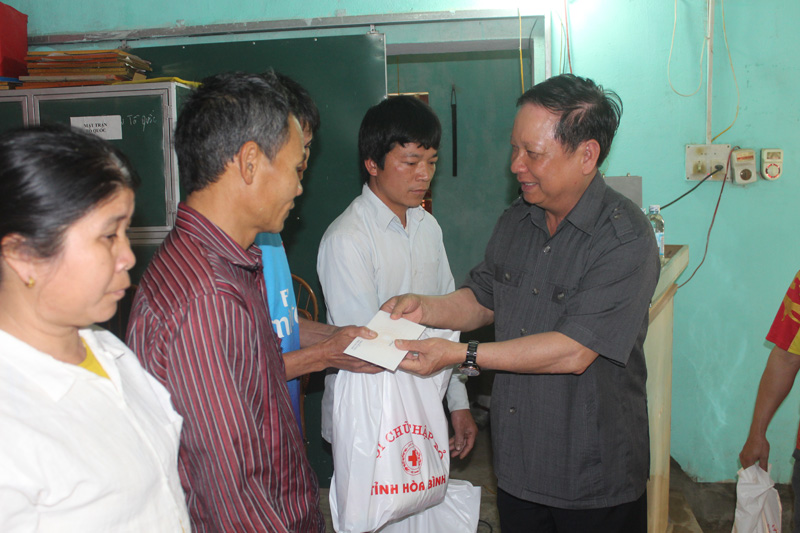
(HBO) – On March 1, Bui Van Tinh, member of the Party Central Committee and Secretary of the Hoa Binh Party Committee, had a working session with the Kim Boi district Party Committee’s Standing Board on local agricultural production, new-style rural building and implementation of resolutions of the provincial Party Committee.

Secretary of the Hoa Binh Party Committee Bui Van Tinh concludes
the working session.
This year, Kim Boi district’s spring crop, which spans over 3,494
ha, has been on schedule, with disease prevention and natural disaster
consequences surmounting prioritised. The district has prepared saplings to
grow 1,000 hectares of forests, and implemented local agricultural
restructuring and development projects. The building of new-style rural areas has
been widely promoted to call for public engagement in infrastructure
construction and production development.

Secretary of the Hoa Binh Party Committee Bui Van Tinh is introduced
to a chilli farming model in Ha Bi commune (Kim Boi district).
Concluding the working session, Tinh stressed a number of
prioritised tasks for the upcoming time, including enhancing leadership of
Party committees and authorities at different levels, overhauling production
based on market demand and increasing added value in agricultural production.
The district should attract investment in agriculture, consider expanding
longan growing areas in Son Thuy, boost technological application in farming,
intensify new-style rural building, and speed up efforts to overcome natural
disaster consequences, among others.

Secretary of the Hoa Binh Party Committee Bui Van Tinh presents 29
gifts worth over 20 million VND to households in Mo Hoac hamlet (Ha Bi commune)
who were affected by floods in October 2017.
The provincial Party leader studied farming situation in Son Thuy
and Ha Bi communes as well as inspected the implementation of a resettlement
area project. He also visited and presented 29 gifts worth over 20 million VND
to households in Mo Hoac hamlet (Ha Bi) who were affected by floods in October
2017./.
The Standing Board of the Hoa Binh provincial Party Committee has agreed in principle on a proposal by the Standing Board of the Party Committee of Hoa Binh city to gather feedback on the city’s 1:2000 zoning plan, which forms part of its broader urban development strategy.
Hoa Binh province has made notable progress in public administration reform and digital government development, with the satisfaction index among citizens and businesses reaching over 84%, according to recent government evaluations.
Thanks to great efforts by local authorities in recent times, the governance and public administration performance of Mai Chau district has been significantly improved.
In the afternoon of June 6, the Party Committee, the People's Council, the People's Committee and the Fatherland Front of Lac Son district solemnly held a meeting to celebrate the 139th anniversary of the district's founding (1886–2025) and the 79th anniversary of the establishment of the district's Party Committee (1946–2025). There was the attendance of Mr. Bui Van Thang, the Vice Chairman of the Provincial People's Council; Mr. Quach Tat Liem, the Vice Chairman of the Provincial People's Committee; Ms. Dang Bich Ngoc, the Deputy Head of the National Assembly Delegation of the province; as well as the former leaders of the province and district through various periods, who are the natives of the district.
Implementing the Politburo’s Resolution No. 57-NQ/TW on breakthroughs in science – technology, innovation, and digital transformation is a golden opportunity for the northern mountainous province of Hoa Binh to renew growth model, improve competitive edge and shorten digital gap.
Resolution 57-NQ/TW, issued by the Politburo on December 22, 2024, identifies sci-tech, innovation, and digital transformation as strategic breakthroughs to build a developed and prosperous nation. In Hoa Binh province, this spirit is not just a slogan, it’s being put into action through concrete initiatives that form a "new development triangle”: digital citizenship, digital economy, and digital administration.





